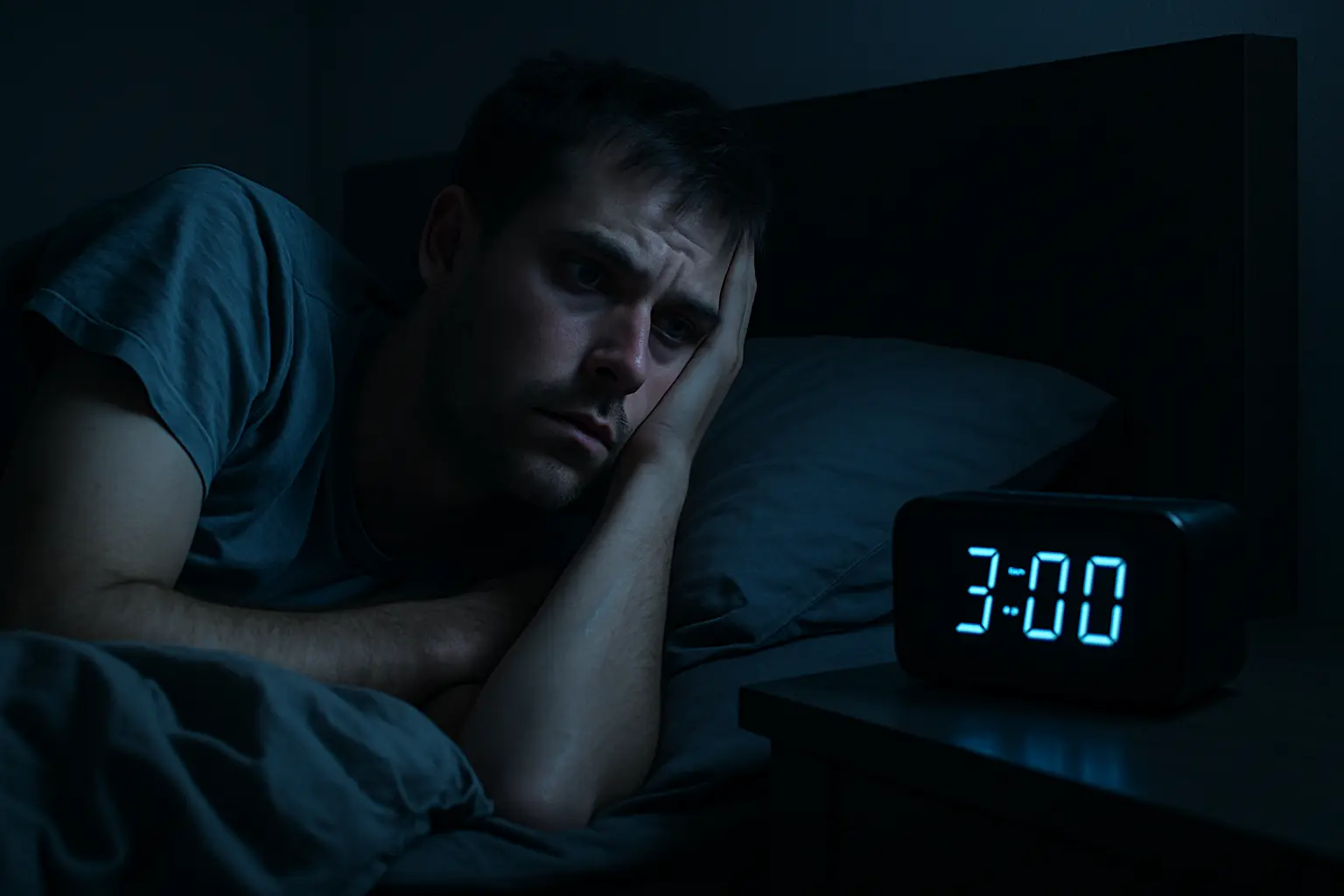Midnight Wakeups and Insomnia: Decoding the 3 AM Habit
You glance at the clock — 3:07 AM again.
Your mind starts racing, and falling back asleep feels impossible.
If this scenario sounds familiar, you're part of a growing number of adults experiencing "midnight wakeups" — a subtle form of insomnia linked to stress, hormones, and disrupted circadian rhythms.
How Sleep Influences Nighttime Wakeups
Human sleep follows a natural rhythm regulated by cortisol and melatonin. Around 3 AM, cortisol begins to rise to prepare your body for waking.
If your stress levels are high, this cortisol surge happens too early, causing you to wake prematurely.
Other common triggers include:
- Drinking alcohol or caffeine in the evening
- Low blood sugar due to late-night hunger
- Overheating or poor bedroom ventilation
- Sleep apnea or snoring disrupting oxygen flow
By identifying your trigger, you can start retraining your sleep cycle naturally.
Real-Life Example: Liam's 3 AM Pattern
Liam, a 37-year-old engineer, spent months waking up between 2:45 and 3:15 AM.
Using the SnailSleep App, he tracked sleep stages and discovered micro-awakenings triggered by noise and body temperature spikes.
After adjusting his bedtime, reducing screen exposure, and using white noise, his nightly wakeups dropped by 80% within three weeks.
Practical Tips to Break the 3 AM Cycle
- Avoid screens an hour before bed – Blue light suppresses melatonin.
- Keep blood sugar stable – Have a small protein-rich snack if needed.
- Journal your thoughts before sleep – Clear mental clutter to reduce cortisol.
- Use consistent sleep times – Your body loves predictable rhythm.
- Monitor snoring or breathing pauses – Apps like SnailSleep can help identify if sleep apnea is involved.
Final Thoughts
Many people misinterpret 3 AM awakenings as "just anxiety."
In reality, they're often a biological signal that your body's nighttime stress response is unbalanced.
Balancing evening routines, meal timing, and emotional release can restore deep, continuous sleep.
Related Articles
- Avoiding Insomnia: Part 2 - Harnessing Your Circadian Rhythm for Optimal Sleep
- Insomnia and Anxiety: How Worry Steals Your Sleep
- Avoiding Insomnia: Part 1 - Understanding Your Sleep Drive for Better Rest

